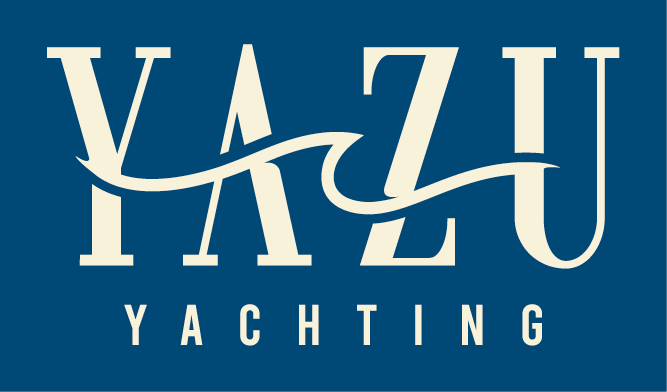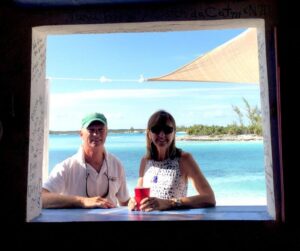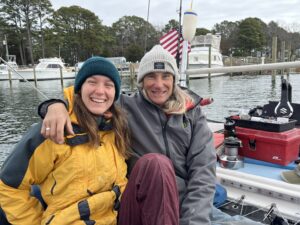The boat-buying process is a minefield. There is much to consider and so much to learn, especially if you are a first-time boat buyer. We have put together a few suggestions about what you should think about as you embark on the journey.
*YaZu Tip #1* When buying your boat, consider the 80/20 Rule. How are you going to be using your boat 80% of the time? Make your purchase decision around the 80%, and you can always make a plan for the remaining 20%.
1. Consider The Type Of Vessel – Sail or Power.
There’s a lot to factor into your decision when it comes to the mode of propulsion. If you love the quiet when you turn off the engine, the sound of the water on the hull, and the wind in the rigging, being able to manipulate the sails, and the joy of the journey from Point A to Point B, then a sailboat is probably the boat for you.
On the other hand, if you love setting out for a destination, knowing how long the journey will take you, without relying on the wind to get you there, then a powerboat is your best bet. The cost of fuel is a factor, the larger the engine/s the more you burn.
Consider all the ways you’d like to use your boat, and the benefits of each mode of propulsion to determine which is right for you.
2. Consider The Creature Comforts
Some boats come to market packed with equipment like autopilot, generator, radar, solar panels, the best navigation equipment money can buy; they have multiple cabins, multiple heads and luxurious accommodations. Many boats have outdated equipment and lack some of the modern creature comforts, but they get you on the water and take you to the same places.
Consider what you can afford and what you truly “need” at the time of purchase, and what you can add & customize as you go. After using the boat, you may find you don’t need some of those items you thought you couldn’t live without.
3. Consider Where You Will Go: Offshore Capability, Overnights, Draft
Are you planning long journeys and spending the night(s) aboard your boat, or are you more of a day-tripper looking to make it back to the dock before the sun goes down? Where you want to go on your boat can determine many things about your “best” boat.
Offshore
Does the boat have the capability and equipment you need to go offshore?
Overnights
Does your boat have the accommodations below for comfortable nights aboard.
Draft
Where are your sailing/boating grounds? Do you boat in shallow waters/have limitations at your dock and therefore need a shallower draft?
*YaZu Tip #2* Remember that we all tend to live more simply on a boat which can mean we don’t need as much equipment, storage, etc. as we initially anticipate unless you are liveaboard or going long-term cruising.
4. Consider The Size Of Your Boat
When you begin your search for the Best Boat for You, the size of the vessel can have a big impact on your decision. You want a vessel that will be comfortable, can accommodate the number of passengers you will have on board on a regular basis and allow you to entertain (or not).
A few items that should be calculated into the size factor are:
Headroom
Are you a little taller than average joe? You may want to consider the headroom down below.
Cockpit Size
You spend most of your time living in the cockpit. Mobility is a big factor; how many people can join you on a cruise or for happy hour. Can you lie full length on a cockpit seat to take a nap?
Living Space
Is a single cabin enough for you and your partner, or would you like to have family members stay aboard with you? You may require additional sleeping cabins. You spend very little time in sleeping cabins when aboard, so a spacious salon and cockpit may make more sense than focusing your search on a large primary cabin. Don’t “buy cabins” for potential guests who never turn up! If necessary get an air mattress and let an extra guest sleep on the floor or in the cockpit. Or choose a boat where the salon table can be converted to a bed.
Handling and Comfort
The size of the boat can affect ease of handling. If you’re new to boating or you’re used to smaller boats, consider your comfort level as you move up in boat size.
Also remember that the skills are the same and you soon learn to handle your new boat, so think long-term needs/plans, not short-term ‘can I handle the boat?’ Bow (and stern) thrusters are real game changers in boat handling! When considering a boat for offshore sailing when big waves may be encountered for long periods of time, remember that lighter and smaller boats are pushed around by waves more significantly than their heavier and larger counterparts. Constant movement is tiring on the human body and tiredness leads to poor decision making and mistakes. Many blue water cruisers prefer heavier monohulls for reasons of comfort and safety. The lighter/faster camp make an argument for quicker passages with shorter time at sea and the ability to outrun weather systems. There are valid arguments from both camps.




